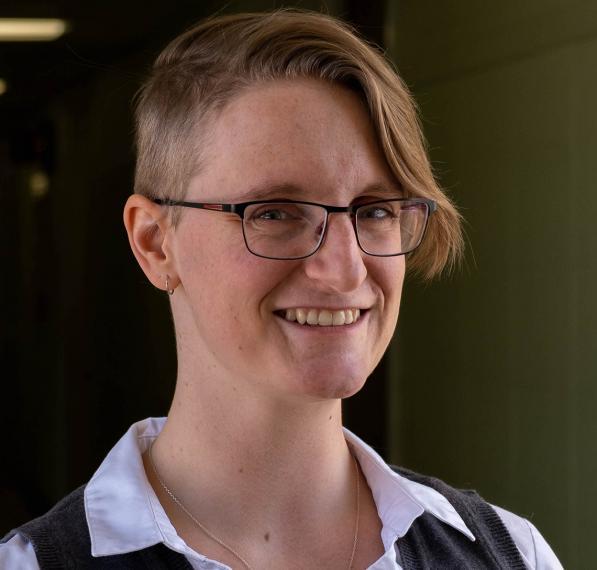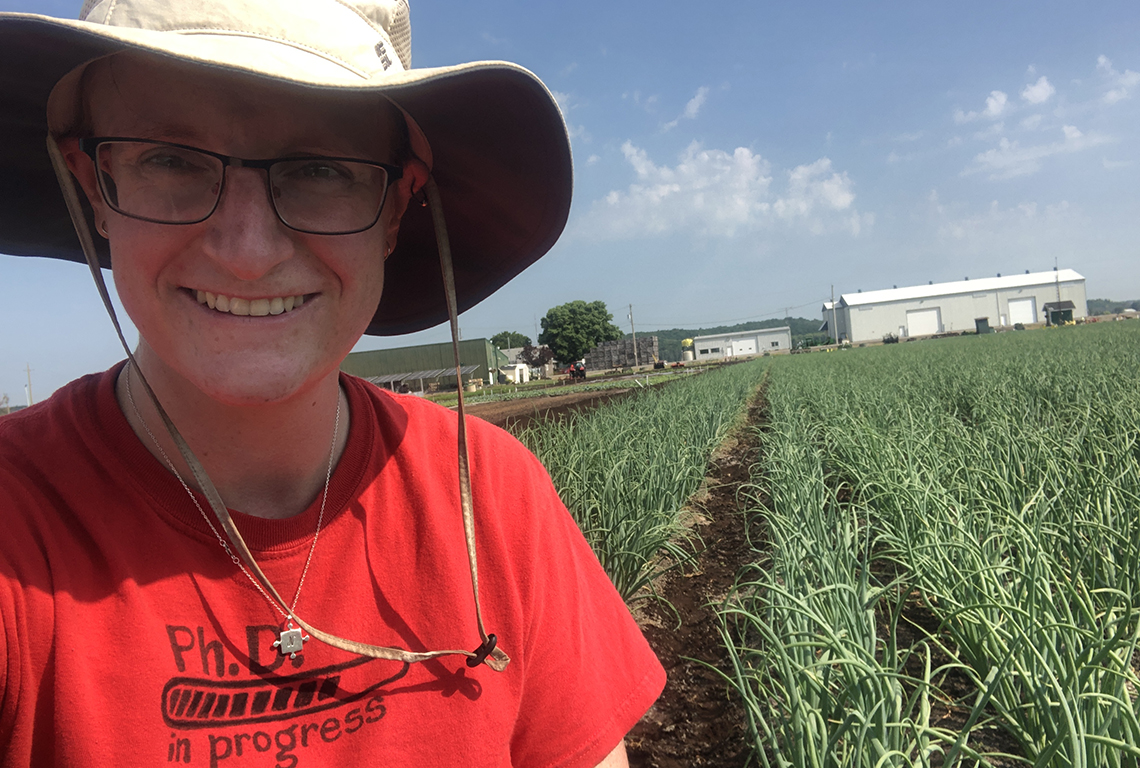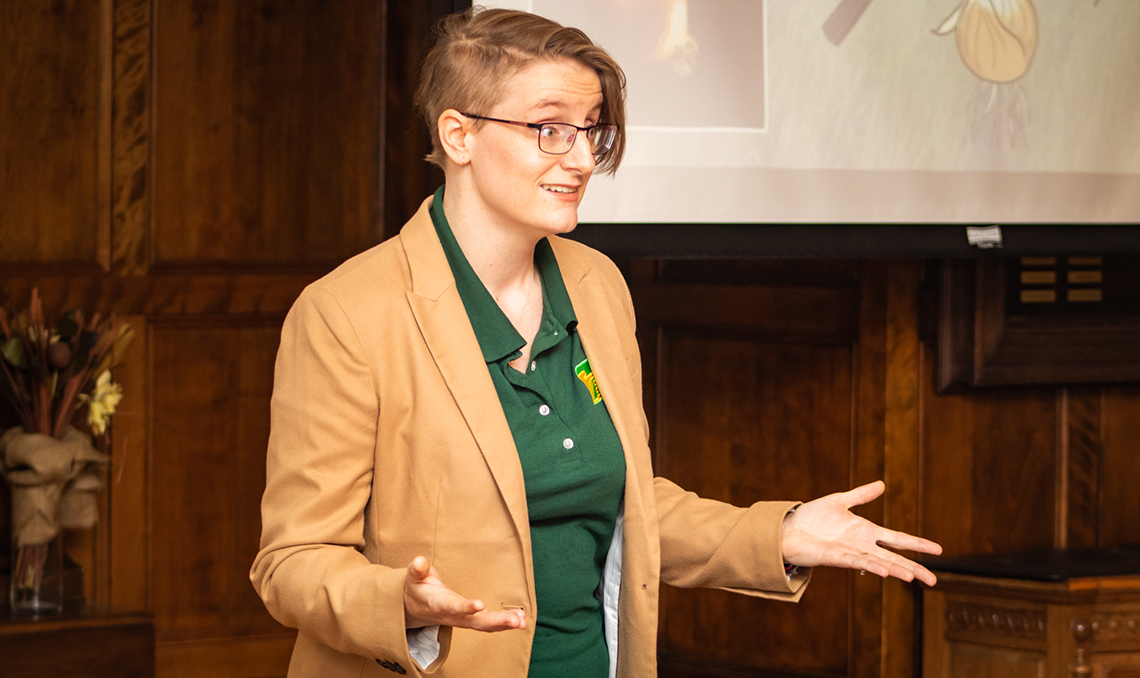Students improving life: Using communication to increase scientific understanding

Most would agree you can’t accomplish much in three minutes, but PhD candidate Sara Stricker won awards for her ability to present her thesis research in that amount of time.
Sara, a graduate student in the Department of Plant Agriculture, recently placed 4th in the provincial Three Minute Thesis (3MT) competition. The 3MT is a global research communication competition that challenges graduate students to present their research in three minutes, with the aid of a single slide. Competitors must ensure their presentation is consumable to a general audience and a panel of judges.
To reach the provincial competition, Sara had to compete in the Ontario Agricultural College- and University of Guelph-wide heats where she placed first at both. Sara presented her research at the college level just before the restrictions of the pandemic hit last spring. Luckily, the University and provincial competitions shifted to virtual formats.
Through “Know Thy Enemy: Stemphylium Leaf Blight”, the title of her presentation, Sara explained her research objectives and impact.
“I am studying to be a plant doctor, because plants get sick too,” says Sara. “In the same way humans and animals get sick from fungi, viruses, and bacteria, plants do as well. I am investigating management techniques for a fungus that infects the leaves of onions, that results in fewer or smaller bulbs.”

During the 2021 Canadian Association for Graduate Studies Conference Sara was announced fourth place at the provincial level.
“I continue to be shocked as I get these wins,” says Sara. “When I reflect on the other competitors at each level, they have all been amazing. The provincial competition was high caliber science; I was blown away by the quality of work. I am really proud to have placed fourth among the amazing research being conducted in Ontario.”
This isn’t the first time Sara presented her research in this unique format.
In 2015, while completing her master’s degree in the School of Environmental Sciences, Sara competed in the 3MT for the first time. In the college-wide heat she placed fourth out of four, but she didn’t let that result diminish her passion for science communication and extension.
“I knew this was something that takes practice,” says Sara. “When I first started doing presentations during my master’s I was not good, but my advisor, Dr. Tom Hsiang, recognized my potential and encouraged me to seek opportunities to improve.”
Sara made it a personal goal to present at least once a semester. She pursued opportunities to talk at conferences and connected with professors to pitch ideas for guest lectures. Six years later, Sara attributes part of her 3MT success to these additional efforts.
“Practice makes better,” she says, “and you should not give up, even if you fail at something. I tried it once and failed, so I tried again. The worst that could happen is someone says no.”

To add to her list of science extension efforts, Sara has been a teacher’s assistant for many university courses, volunteers with Let’s Talk Science and the Canadian Association for Girls in Science, and holds a bachelor of education.
“I like presentations, teaching, and outreach, especially to different groups of people,” says Sara. “If we as scientists can successfully communicate our knowledge in a way people understand and feel engaged with, they are more likely to share that information.”
Sara believes that moving forward, knowledge extension requires an interdisciplinary approach to make science more accessible.
“Science is everywhere; it’s our phones, food, and entertainment,” she says. “It is everything in your life. If you don’t understand science, you might become afraid of it. When that happens, we get people who don’t understand or agree with scientists. If we communicate effectively, knowledge is going to spread exponentially.”
You can learn more about Sara’s research by watching her 3MT presentation or listening to her on the Why & How podcast.